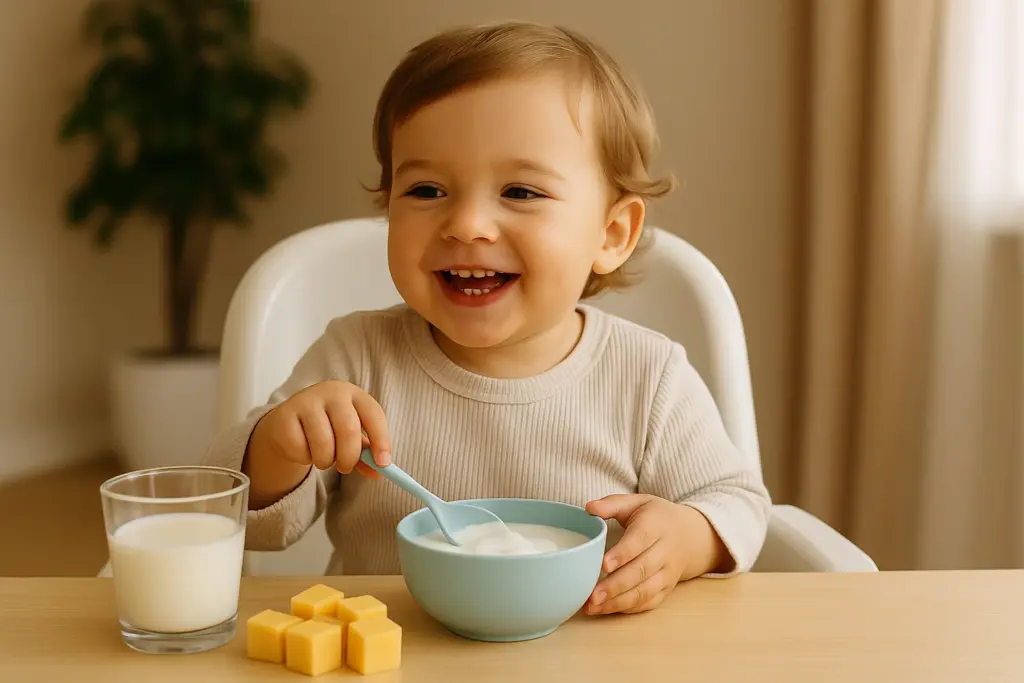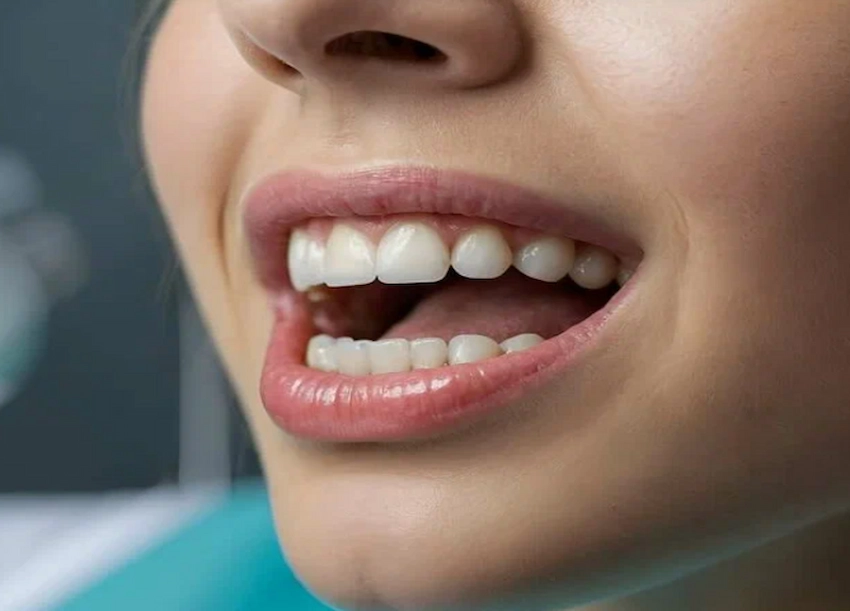🥦 The Role of Calcium in Baby Teeth Development
Did you ever think about why one kid’s baby teeth appear fine, while another child’s teeth have cavities or enamel is quickly weakened? It’s perfectly clear that brushing and flossing are the most important steps in oral health; however, it’s actually a very important mineral that is making a big impact stealthily, and that mineral is calcium.
Lema Dental Clinic in Istanbul, Turkey is a strong believer that each of your little ones’ grins should be treated like stars. Our kids’ dental professionals follow a full-health approach to dental care, and with their help, the families learn what foods are proper for their children, that it is important to check them up early, and what the long-term plans are to create a Hollywood Smile from the beginning.
It seems that calcium is the unsung hero of teeth health, as it is the leading compound in charge of teeth building even before your baby’s teeth pop up. The process is all about turning teeth white of the most basic kind and ensuring that the circulation of minerals within an organism is unchallenged. Peachy. Early teeth whitening and minimization of the demands of the earth for the health of one’ jawbones facilitate abundant food and nutrients for babies, and make a new mother also healthy.
Why Is Calcium Important for Baby Teeth?

Out of the many minerals present in the human body, calcium tops the list. Besides it being the key building block for the teeth that will erupt through when a child is born, the role of calcium does not stop there.
For the child, calcium is the most important mineral as far as their teeth are concerned. From the development of these teeth within the gums of your developing unborn child, calcium is the main mineral that helps in their formation. That’s right — those cute little teeth are already forming in the womb!
Next, after the birth, calcium is the one that will assist the teeth to grow while going under eruption at the same time as the baby. The compound is beneficial to both the enamel, which has to be built up by calcium, and the dentin, which is the middle portion of the tooth. It works for teeth formation, development of a strong tooth structure, etc. If parents want to give their children good teeth and bones, they should just supply them with enough calcium. Conversely, in the absence of the calcium element, children can suffer from dental caries, tooth decay, and dental cavities. Dentists usually give calcium prescriptions to the children who have suffered from milk-tooth cavities.
However, calcium not only supports teeth but it also keeps the jawbone strong, which is the key to holding the teeth in place and also the correct growth of the facial bones. Lack of calcium can make the whole dental structure shaky, leaving orthodontic or health problems for the future.
How Calcium Supports Enamel and Tooth Structure
The enamel would be best compared to a protective armor that keeps the tooth from any harm that could be brought about by sugar, acid, bacteria, and temperature. It is the toughest part of the body, and it contains mostly calcium and phosphate. To have enough of these minerals in their early life is therefore a must.
Here’s the thing: enamel is not going to come back if it happens to get lost. This means if the condition of the tooth decay in the child’s teeth comes as a result of low calcium levels and enamel becomes soft or thin, there is no going back to change it, and those teeth will always be at greater risk. Consequently, early tooth decay may result in the child, difficulties in feeding and even speech development issues. Children’s teeth are the most fragile ones in the body and thus need the most care and protection.
Next, besides enamel being hard, indeed, the layer of our teeth called dentin also contains calcium, and it is the one that helps to absorb the shock and insulate the nerves inside your teeth. Therefore, if dentin and enamel are equally robust, the child’s emerging teeth can withstand difficulties such as teething or a few falls during play.
Signs of Calcium Deficiency in Babies and Toddlers

Calcium deficiency might not manifest itself right away, particularly if the baby has not yet grown their first teeth. However, there are certain signs that parents need to be cautious about. The first indication of any problem could be delayed teething. When the baby’s first tooth doesn’t appear at the usual time, that’s a sign that there are some bone mineralization problems.
Moreover, watch the condition of the teeth when the kids come in. Do they have a dull or yellow color instead of being shiny and white? Do they break off easily or hurt a lot when exposed to hot and cold? These symptoms also added to the previous symptoms, can be an indication of the tooth enamel not forming properly due to a deficiency of calcium.
Kids might also exhibit signs in other parts of the body in certain instances, such as broken nails, dehydrated skin, or undetailed bone development. Since the whole body consumes calcium (not just the teeth), these symptoms can indicate that your child is in greater need of calcium through his/her diet. Consistent tooth decay in the milk teeth of a child, even with regular brushing, is also a clue.
Food to Improve Your Child’s Teeth Growth Bearing Sources
You are aware of the calcium role played by calcium. Let us expound how to skillfully entrench it into the growing child’s body using a calcium-rich diet. Fortunately, calcium offers a plethora of treasures for kids to choose from, and it is not limited to the famous milk.
The most popular calcium-rich foods include:
- Milk of any (cow) or fortified plant types such as almond or soy
- Cheese varieties such as cheddar, mozzarella, or even healthy string cheese.
- Yogurt in any (plain, Greek, or kid-friendly and fruity) version.
Veganism also offers a variety of calcium-dense choices. Indeed, several untalked about vegetables are potential sources of calcium, namely:
- Spinach, for example
- Broccoli
- Kale
- Collard greens
And when does it come to break time or perhaps a meal for a fussy eater? If so, these can be ways to go:
- Tofu
- Fortified orange juice
- Fortified cereals, and oatmeal
- Sardines or canned salmon (with bones — yes, they are edible!)
It’s a good idea to vary the sources and not use the sole one. This not just makes the meal exciting, but it also keeps your children in touch with other nutrients which are good for calcium absorption, such as vitamin D and magnesium.
How to Ensure Your Child Gets Enough Calcium Daily

So, how much calcium do you need? Here we go — a rough sketch according to the age and number of children in the family
- Infants (0–6 months): 200 mg/day
- Babies (7–12 months): 260 mg/day
- Toddlers (1–3 years): 700 mg/day
- Young kids (4–8 years): 1000 mg/day
These figures may look quite high, but a little bit of simple food can easily fill them up. For instance, one cup of milk has approximately 300 mg of calcium, and a small yogurt gives another 150–200 mg. However, if you add some steamed broccoli or perhaps have fortified oatmeal, your situation is the best possible one.
If your kid only likes to eat the same things all day or has a meal that is free of dairy, you will need to add a supplement to the child’s diet. The pediatrician or dentist is the right person to get some useful information about this. When your current dietary approach does not bring results, it is very good when the child refers to the doctor. But, remember that over-supplementing counts as overeating and this can lead to other difficulties like kidney strain.’
Also, don’t forget about the consumption of liquids. One of the liquids to keep in mind is water, especially if it is fluoridated. It makes the tooth enamel hard and supports oral hygiene in general.
FAQ: The Role of Calcium in Baby Teeth Development
Calcium helps build strong enamel and dentin, which protect baby teeth from cavities, sensitivity, and damage as they grow and develop.
Early signs include delayed tooth eruption, chipped or brittle teeth, discoloration, and frequent cavities, even with proper hygiene.
Milk, cheese, yogurt, leafy greens, tofu, fortified orange juice, and calcium-rich fish like sardines all help build stronger teeth.
Yes, but only if your child isn’t getting enough from food. Supplements should be recommended by a pediatrician or dentist.
If your child has weak enamel, unusual tooth development, or frequent decay, book a dental visit to evaluate their calcium needs.




